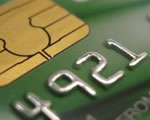 Go to main content
Go to main content
Archive Website of the UK government
Please note that this website has a UK government accesskeys system.
Main menu
Page menu
Money, tax and benefits

Bankruptcy – what happens to your bank accounts and credit rating

If you are made bankrupt, it can affect how you manage your bank or building society accounts and your credit rating. Find out what happens to these, the restrictions you must agree to and where to get help and advice.
How bankruptcy affects your bank accounts
When the court makes you bankrupt, you should stop using your cheque books and bank or credit cards. These must be handed over to the Official Receiver (the court’s bankruptcy officer).
Your bank or building society will be told that you are bankrupt and will freeze all your accounts, including any joint accounts. While your accounts are frozen, you can’t receive or make payments. This will affect any standing orders or direct debits you have, so you should make alternative arrangements to pay any bills.
Money in your accounts
Your Official Receiver or trustee (the person appointed to manage your bankruptcy) will take control of your assets (property, shares etc). Any money in your bank account is an asset and will be used to repay your creditors (people you owe money to).
You can ask your trustee or Official Receiver if they will release:
- any money you need for urgent domestic expenses – for example, buying food
- your partner’s share of any money held in a joint account
Money owed to your bank or building society
If you owe money to your bank or building society (for example, an overdraft or bank loan) they are one of your creditors.
When you are made bankrupt, you aren’t allowed to make payments directly to your creditors and they must not ask for any payments. Your trustee or Official Receiver will write to your bank or building society explaining how these debts will be managed.
If you have a joint bank account, the bank can ask the other account holder(s) to pay back the money owed. You should get independent advice on how bankruptcy can affect any debts connected with a joint account.
Mortgages and secured loans on your home
Your trustee or Official Receiver can sell your home if this is the only way to raise money to pay your bankruptcy debts. Any mortgages or secured loans will be repaid before your bankruptcy debts.
You may have to tell your mortgage lender or loan provider about your bankruptcy. You should get independent advice about how bankruptcy can affect your mortgage or secured loans.
How bankruptcy affects your credit rating
Details of your bankruptcy are included on your credit file, the information used by lenders to rate your suitability for credit. A poor credit file makes it difficult to get credit (like overdrafts or loans) and can mean paying in advance for things like electricity.
Your bankruptcy will remain on your credit file for six years from the date the court made you bankrupt. After this time, credit reference agencies will automatically remove the bankruptcy entry.
Contact the credit reference agencies directly or get advice from an independent debt adviser if you want to check your credit file.
Bankruptcy and managing your money
Your current bank or building society will decide if you can continue using your accounts and what facilities will be made available to you.
There are restrictions you will have to agree to if you use a bank or building society account during your bankruptcy. You must tell:
- a lender you are bankrupt if you borrow more than £500 – for example, an overdraft or buying something on credit (it is a criminal offence not to)
- a lender you are bankrupt if you want to open a new account
- your trustee or Official Receiver about any new accounts if they ask about them or you have more money in there than you reasonably need
If you need help or advice on any of the bankruptcy restrictions, speak to your trustee or get independent advice.
Options for managing your money
There are ways to manage your money during your bankruptcy, for example:
- basic bank accounts – no credit checks and no overdraft or other credit facilities
- prepaid debit or credit cards – no credit checks and you can only spend the money you load onto the card
- Post Office 'Card Accounts' – only used for receiving benefits
Find out more about your options from organisations like Citizens Advice and the National Debtline.
More useful links
Useful contacts
In this section...
- Bankruptcy - a guide
- Bankruptcy - how to apply
- Bankruptcy - the role of the Official Receiver
- Bankruptcy - your responsibilities and restrictions
- Bankruptcy - how and when it can end
- Bankruptcy - how it affects you
- Bankruptcy - how your debts are paid
- Bankruptcy - what happens to your pension
- Bankruptcy - what happens to your home
 Facebook
Facebook Twitter
Twitter StumbleUpon
StumbleUpon Delicious
Delicious Reddit
Reddit
